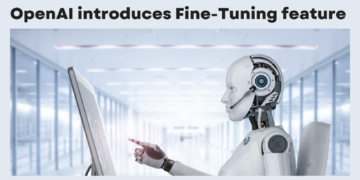The Who of the Forrester Wave
Forrester evaluated 15 vendors that are significant in the Robotic Process Automation (RPA) space and ranked them. The 15 vendors were carefully chosen among all the available options if and only if–
- Their RPA revenue from services crossed $80M in 2020.
- They have over 600 billable Full-Time Equivalents (FTEs) from client work related to RPA.
- Forrester’s clients are interested to know about the vendor’s work on RPA
The How of the Forrester Wave
The Forrester Wave is an overview of the research company’s ranking after considering 17 criteria. After the evaluation, Forrester classified the companies into three categories. The high-level groups include the company’s current offering, strategy, and market presence.
- Current Offering – Placed on the vertical axis of the Forrester Wave, this characteristic indicates the strength of a company’s currently offered products. The breakdown of this is how effective a company’s RPA implementation is, depending on aspects of its digital transformation. For example, intelligent automation, operating model development, RPA support, and other essential attributes play an important role.
- Strategy – Strategy is placed on the x-axis. It includes a company’s vision, innovation road map, performance, etc.
- Market Presence – Represented by the markers on the wave, market presence reflects a company’s revenue and the number of customers.
The Forrester Wave – RPA, Q2 2022 –
A simplified rendition of the Forrester Wave: RPA Q2, 2022 –
Leaders –
EY
- EY has a clear vision of how to empower its clients looking to transform their businesses through automation.
- Can manage complex business transformation expectations and successfully delivers, no matter the scale of the program.
- It is one of the most preferred partners of RPA vendors and alleviates risk through thorough planning about deploying resources.
- The roadmap ahead has upskilling and investment into integrating solutions, automation services, and products combined with Machine Learning (ML).
- EY is prepared to handle strategized automation with a radical approach toward risk. The company’s ‘Wavespaces’ aligns clients’ and executives’ interests and deploys impactful results.
IBM Consulting
- Offers advanced automation solutions on a client-centric system driven by the need to deliver excellence in process and automation.
- The company’s vision is ‘extreme automation.’ Their RPA, AI, data science, and analytics deliver this on their ‘extreme automation platform.’
- It has notable partnerships, allowing diverse options and a capable mix of development technologies.
- IBM research empowers their services. Their roadmap includes investing more in digital workers and upskilling their staff.
- The firm is fully equipped with IBM Garage, IBM Process Excellence, and a complete RPA service. The company focuses on reengineering and process alignment and has the equipment to deploy the required services.
Accenture
- Accenture is one of the notable leaders in automation, with a diversified investment in accelerators, assets, and platforms.
- The company’s vision is to make the hybrid workforce of Artificial Intelligence (AI), and humans happen. Accenture’s roadmap includes investing in more technologies that realize its vision.
- Accenture is merging its automation delivery platforms SynOps and my wizard. Even though this makes Accenture a viable option, the company still has to go a little further to revolutionize business automation.
Deloitte
- Deloitte has notable partnerships with vendors, and its vision is to invest more in tools like AI and digital workers.
- Their implementation plan looks like this – assessing processes, establishing an operating model, and implementing at the required scale.
- The company has a robust change management model, and Deloitte Digital enables its clients to focus on a more human-centric digital transformation through automation.
- One thing Deloitte lags is the lack of more traditional support aimed at RPA.
TCS
- TCS’ Machine First Delivery Model (MFDM) focuses on a more delivery-centric approach while clients. But clients tend to lean more toward a transformation-centric system.
- The company has notable partnerships with RPA as well as RPA-adjacent products.
- The company’s roadmap has the integration of AI and analytics with RPA. The focus will be on building more industry-specific automation models.
Cognizant
- Cognizant built Cognizant Neuro, a platform designed to implement industry-specific automation across all client business processes.
- Cognizant follows a more client-centric, industry-focused, and digital-first approach.
- The advisory for their automation program seems to be lagging, which is a concern given their digital agenda.
- Another drawback with Cognizant seems to be the high attrition rates among middle management.
Strong Performers –
Genpact
- Genpact draws from its operational experience and business proficiency to fully extract the full benefits of commercialization.
- The company should focus more on implementing rather than on pursuing transactional value.
- Their roadmap involves developing industry-specific automation platforms powered by cloud computing and process mining.
PwC
- PwC has wholly focused on citizen development and invested in developing tools supporting the same.
- The company’s resources are reliable, but their delivery and code need to improve in quality to deliver their clients’ requests better.
Capgemini
- Capgemini’s services are one shoe fits all, which is not true when expanded to the market.
- The company’s focus is on developing automation platforms and intelligent automation platforms.
- They need to expand their resources to be readily accessible to their clients.
Infosys
- Infosys invested in a cognitive automation studio and has appreciable partnerships with RPA vendors.
- But they fail to distinguish a vision between their Automation and Digital Process Automation.
- The company is creative when it comes to solving client problems but is limited by its boundaries.
Contenders –
KPMG
- Most of KPMG’s focus is on integrating automation to finance processes.
- This limitation to finance processes made the company move farther away from modern or mainstream RPA services.
- The company’s vision for RPA is relatively frail, and they should refocus to expand their focus to at least workforce transformation.
Hexaware
- Hexaware’s RPA services are growing, and the company has strong partnerships with RPA vendors.
- The company’s roadmap includes building and maintaining its book of solutions. The company is known for its well-built bot infrastructure.
- Hexaware seems to fall short regarding supporting governance, innovation, and process management.
Atos
- Atos focuses more on hyper-automation, which includes RPA, analytics, and AI. This tends to fare well with clients expecting digital transformation but fails when cost reduction is involved.
- The company is investing in empowering bots, KPIs, and AI modules.
- Atos fares well regarding client engagement and assistance with automation investment. But they need to focus more on their development quality.
EPAM
- EPAM does not seem to have a deep or successful partnership with notable RPA vendors.
- The company is working on process mining and investing more in developing a digital worker that BPO firms can avail of as a service.
- EPAM’s RPA services do not include process assessment, a Centre of Excellence (COE) setup, or governance.
Challenger –
HCL Technologies
- HCL Technologies is a relatively new player in the RPA services market. Their vision, the roadmap for innovation, seems to be nonspecific.
- To establish valuable partnerships, HCL needs to strive and showcase excellence.
- There are a few laudable displays of creativity when engaging clients, but the overall setup needs improvement.
- The focus of management is mainly on expanding what is already established. They seem to shy away from implementing new ideas.



























